Human Rights Institute Announces the 2020 Awardees of its Commendation for Leadership and Commitment in Human Rights
June 26, 2020, NEW YORK – The Human Rights Institute is pleased to announce this year’s recipients of the Columbia Law School Human Rights Institute Commendation for Leadership and Commitment in Human Rights. In recognition of their outstanding leadership in human rights during their Law School careers, the Institute honors six remarkable law students: Bamisope Adeyanju ’20 LL.M., Zoe Bush '20 LL.M., Ibrahim Diallo ’20 J.D., Emma DiNapoli ’20 J.D., Alice Gardoll ’20 LL.M., Libby McAvoy ’20 J.D., Amanda McNally '20 J.D., and Mihir Samson ’20 LL.M.
Awardees are selected based on their commitment to advancing human rights opportunities at Columbia, engagement in activities in and out of the law school, mentorship of their peers, and deep commitment to advancing the human rights field.
This year’s award recipients were nominated by their peers and selected by the Human Rights Institute Faculty Co-Directors Sarah Cleveland and Sarah Knuckey and staff Maya Alkateb-Chami, JoAnn Kamuf Ward, Sarah Mehta, Priyanka Motaparthy, Anjli Parrin, Jessica Pierson, Gulika Reddy, and Tony Wilson.
The Human Rights Institute faculty and staff congratulate Bamiscope, Zoe, Ibrahim, Emma, Alice, Libby, Amanda, and Mihir for their extraordinary achievements.
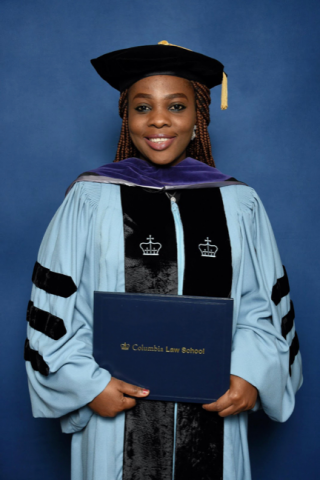
|
Bamisope Adeyanju ’20 LL.M. was a Human Rights Fellow, a Harlan Fiske Stone Scholar, a Baker Mckenzie scholarship recipient, and a Parker School Certificate for Achievement in International Law awardee. Prior to joining Columbia Law School, she utilized human rights and open society legislation to ensure accountability for economic and social rights violations in Nigeria. As a member of the Human Rights Clinic, she worked with the Racial Justice and Economic and Social Rights in the U.S. Project team to advance the rights of rural communities to adequate and affordable sanitation. Adenyanju’s work was instrumental to the team’s submission of a shadow report to the UN Human Rights Council ahead of the U.S. Universal Periodic Review. She also engaged the Inter-American Commission on Human Rights through its Special Rapporteur on environmental rights and drafted a thematic hearing request on sanitation for onward submission to the Commission. Within the CLS community, Adeyanju served as editor of the American Review of International Arbitration Journal and is known for her uplifting support to other students while serving on multiple student organization boards like the Student Public Interest Network, Columbia Law Students for Disability Rights, and the Environmental Law Society. After graduation, she will work with the human rights organization, Accountability Counsel, in Washington, D.C., to promote corporate and institutional accountability and protect the human and environmental rights of communities harmed by internationally-financed projects. |
Zoe Bush '20 LL.M. came to Columbia Law School as a 2019 John Monash Scholar from Australia. During her time as a student, Bush served as a Student Senator, where she advocated for initiatives to reduce Columbia Law’s greenhouse gas emissions. As a student senator, she took incredible initiative in developing a guide for LL.M.s interested in human rights, and often put herself forward to serve as a mentor for other students. She drafted the revised Say Her Name report as Research Assistant to Professor Kimberlé Crenshaw, worked on campaigns to end the school-to-prison pipeline as an extern at the Center for Popular Democracy, advocated for improved public housing conditions in Red Hook, Brooklyn as part of the Community Advocacy Clinic, and assisted with teaching Lawyering for Change as Research Assistant to Professor Susan Sturm. Prior to joining Columbia Law, she worked with Australian Indigenous communities to develop criminal justice reforms for Indigenous peoples with Fetal Alcohol Spectrum Disorder, which have been adopted by the Australian Senate and Amnesty International. Bush will spend the summer gaining experience in movement lawyering as an LL.M. Public Interest Fellow at Law for Black Lives |
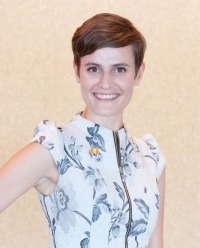
|
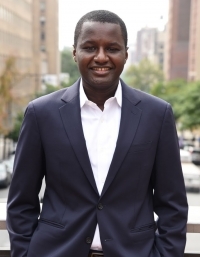
|
Ibrahim Diallo ’20 J.D. arrived at Columbia Law School committed to pursuing a public interest legal career. His work at the Law School has primarily focused on building a social justice community amongst students and faculty and developing relationships between the Law School and the greater New York City community. During his 2L year, he was awarded the Columbia Law School Davis Polk Leadership Fellowship. As part of the fellowship, he organized Columbia law students to get involved in the New York City taxi workers labor movement. In addition to ongoing pro bono projects, Diallo helped establish an externship program between the Law School and the New York Taxi Workers Alliance. As part of his exemplary leadership on campus and mentorship to other students, he served as the Social Consciousness Chair of the Black Law Students Association (BLSA), where he spearheaded a number of new initiatives aimed at engaging Columbia law students in social justice issues. Such initiatives include instituting CLS’s first-ever summer reading program for incoming students; fostering dialogues on domestic human rights with speakers such as Jackson, Mississippi’s Mayor Chokwe Antar Lumumba, and activist and human rights attorney, Nkechi Taifa. Lastly, he served on the editorial board of the Columbia Journal of Race and Law. This summer, Diallo will begin his legal career as a Staff Attorney at the New York Taxi Workers’ Alliance. |
Emma DiNapoli ’20 J.D. has led efforts to strengthen human rights opportunities for students throughout her time at Columbia Law School. DiNapoli served as co-president of Rightslink and Columbia Law Students for Palestine; advocacy co-chair for Columbia Law Students for Palestine; pro bono co-chair for the Society of Immigrant and Refugee Rights; and as the community chair for the Human Rights 1L Advocates Program. She participated in a spring break caravan to Sarajevo, Bosnia as a 1L, and co-lead a caravan to Palestine the following year. As a student in the Human Rights Clinic, she was an inaugural member of a project on disruptions to higher education in Kashmir. She also interned with Human Rights Watch in its International Justice Program, ALEF in Beirut, Lebanon (where she documented the forced eviction of Syrian refugees), and REDRESS in its office in the Netherlands. DiNapoli spent 3L fall in Washington, D.C. with the State Department. She presented her research on reconstruction in Syria at the Salzburg Global Cutler Law Program and the Human Rights Institute Paper Symposium, and published an article on this topic in the Human Rights Law Review. She worked as a research assistant on several projects with Human Rights Institute faculty, co-taught a class on human rights at Barnard College, and provided research assistance to the Syrian Legal Development Programme, the International Senior Lawyers Project, and Immigration Equality, among other organizations. DiNapoli was a James Kent Scholar, Harlan Fiske Stone Scholar, a graduate fellow with the Advanced Consortium on Cooperation, Conflict, and Complexity (AC4), and the 2020 winner of the Edwin Parker Prize. She will work as a Leebron Fellow with REDRESS in London and Sudan after graduation. |
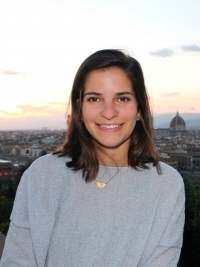
|
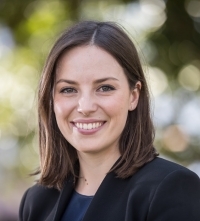
|
Alice Gardoll ’20 LL.M. came to Columbia as a Fulbright Scholar from Australia, where she advocated for refugee rights and the rights of Aboriginal Australians living in the remote Northern Territory. At Columbia Law School, Gardoll devoted her time both in and outside of the classroom to human rights and racial justice work. She helped to prepare briefs defending the rights of persons on death row through Columbia’s Capital Post-Conviction Defense Practicum. As a member of Professors Bernard Harcourt and Alexis Hoag’s Abolition: A Social Justice Practicum, she engaged in an innovative effort to reimagine a criminal justice system no longer based on punitive punishment. She also participated in research to advance the global protection of journalists and media freedom, as part of a team assisting Professors Amal Clooney and Sarah Cleveland. In the CLS community, she was known for her benevolent encouragement and support to other students in her position as LL.M. Board Representative for the Student Public Interest Network. Gardoll will be continuing her commitment to human rights work as an LL.M. Public Interest and Government Fellow with Reprieve. |
Libby McAvoy ’20 J.D. is dedicated to advancing rights-based accountability and justice, motivating solidarity practices in investigation and documentation, and fostering a sense of genuine camaraderie in the work, beginning with her first semester as a Human Rights Institute 1L Advocate. While serving as the Rightslink events chair, McAvoy organized the inaugural Human Rights Week series in coordination with the Human Rights Institute. She also worked first as a research assistant, then as a clinic student and, finally, as a member of the advanced clinic—all with the Project on War Crimes in the Central African Republic. McAvoy was awarded the Irell and Manella Prize for outstanding leadership and good citizenship for her projects through the Society for Immigrant and Refugee Rights, of which she was co-president. Throughout her time at the law school, McAvoy has also dedicated herself to pro bono work, including with the International Refugee Assistance Project, Lenox Hill Neighborhood House, Vaša Prava, and WITNESS. For WITNESS, McAvoy drafted a forthcoming guide on the documentation of sexual and gender-based violence. McAvoy is a James Kent Scholar, a recipient of the Parker School Recognition of Achievement in International Law, and a recipient of the J.D. Public Interest and Government Fellowship. Following graduation, McAvoy will work to harness open-source and visual evidence for accountability and justice as a legal fellow with WITNESS and Syrian Archive (Mnemonic). |
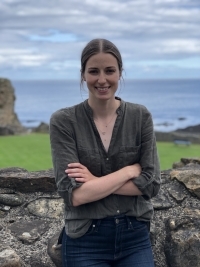
|
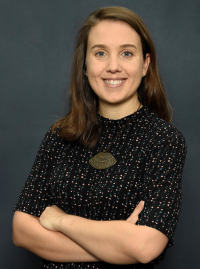
|
Amanda McNally '20 J.D. served as both a role model and mentor to the CLS human rights community. She first joined the community as an HRI 1L advocate, and later became co-president of Rightslink and special features editor of the Columbia Journal of Race and Law. During her time at Columbia, she worked to promote resilience in human rights work as a research assistant with Sarah Knuckey. McNally also spent two years in the Human Rights Clinic, partnering with the Sana'a Center for Strategic Studies on a project on mental health and the psychological impacts of war on individuals, families, and communities in Yemen. As a member of the Human Rights Clinic's Wellbeing Working Group, she was dedicated to building crucial and self-reflective conversations on campus and advocated on behalf of other students for more livable summer funding policies for public interest students. Prior to law school, she obtained a graduate degree in Forced Migration and Refugee Studies, and conducted psychosocial and child protection work with unaccompanied migrant children in Egypt and South Sudan. |
Mihir Samson ’20 LL.M. has worked as a lawyer in India for nine years, focusing on the rights of LGBTQIA persons, public health, and civil liberties. He brought with him extensive experience from his work on the challenge to the anti-sodomy law in India and the legal recognition of transgender persons. During his time at Columbia Law School, Samson was a source of inspiration to his fellow peers. He developed a project to improve LGBTQIA diversity at the Indian bar as a Davis Polk Leadership Fellow and helped organize two protests against the India Citizenship Amendment Act involving students and faculty from across Columbia University. Samson was involved in organizing law students, formerly incarcerated individuals, and artists, to create a performance on incarceration, criminal law, and civic participation. He was a Harlan Fiske Stone Scholar and a recipient of the LL.M. Public Interest Fellowship. As a part of the Fellowship, he will work with the YP Foundation in New Delhi, focusing on strengthening the rights of transgender persons, and confronting recent legal and administrative hurdles to the right of self-identification. |
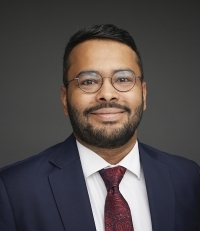
|
###
The Human Rights Institute advances international human rights through education, advocacy, fact-finding, research, scholarship, and critical reflection. We work in partnership with advocates, communities, and organizations pushing for social change to develop and strengthen the human rights legal framework and mechanisms, promote justice and accountability for human rights violations, and build and amplify collective power.
Founded in 1998 by the late Professor Louis Henkin as the anchor for human rights within Columbia Law School, the Human Rights Institute promotes engagement and knowledge of human rights within the law school, throughout the University, and around world. Across the many substantive areas of its work, the Institute builds bridges between scholarship and activism, develops capacity within the legal community, engages governments, and models new strategies for progress.
Join us on Facebook: Columbia Law School and Human Rights Institute
Follow us on Twitter: @columbialaw and @CLSHumanRights
